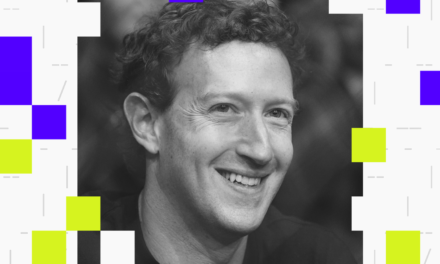By clicking “Sign Up”, you accept our Terms of Service and Privacy Policy . You can opt-out at any time by visiting our Preferences page or by clicking “unsubscribe” at the bottom of the email.
Access your favorite topics in a personalized feed while you’re on the go. download the app
Sign up to get the inside scoop on today’s biggest stories in markets, tech, and business — delivered daily. Read preview
Movie creatives and actors aren’t going to lose their jobs to an AI program just yet, says Netflix co-CEO Ted Sarandos, 59.
“I don’t believe that an AI program is going to write a better screenplay than a great writer, or is going to replace a great performance, or that we won’t be able to tell the difference,” Sarandos told The New York Times in an interview published Saturday.
This story is available exclusively to Business Insider subscribers. Become an Insider and start reading now.
“AI is not going to take your job. The person who uses AI well might take your job,” he added.
Sarandos was appointed Netflix co-CEO in July 2020, serving alongside the company’s founder Reed Hastings. When Hastings stepped down as co-CEO to become Netflix’s executive chairman in January 2023, he was replaced by the company’s COO Greg Peters.
Advertisement
AI, Sarandos said, would have a similar impact on the entertainment industry as other past technological advancements.
“Remember how everybody fought home video? For several decades, the studios wouldn’t license movies to television,” Sarandos told The Times.
“So every advancement in technology in entertainment has been fought and then ultimately has turned out to grow the business. I don’t know that this would be any different,” he continued.
Related stories
Sarandos’ comments are surprising considering the streaming giant’s use of data and analytics to guide their creative decisions.
Advertisement
Last year, Netflix said it was recruiting a product manager for an AI-focused role. The listing, which offered a salary range of $300,000 to $900,000, said that AI would be used across Netflix’s operations, including helping the company buy and “create great content.”
Representatives for Netflix didn’t immediately respond to a request for comment from BI sent outside regular business hours.
The rise of AI in the past year has rattled both Hollywood and the wider entertainment industry, with many creatives expressing concern on how the technology could affect their livelihoods.
Last year, both the Writers Guild of America, or WGA, and the actors union SAG-AFTRA went on strike over issues such as compensation and the threat posed by artificial intelligence.
Advertisement
Members for both groups believed that cost-conscious studios could use AI to supplant writers and actors in their productions.
The WGA strike lasted nearly 150 days, running from May 2023 to September 2023. Likewise for the SAG-AFTRA strike, which started in July 2023 and ended in November 2023, after 118 days.
In February, OpenAI wowed the world when it released its text-to-video model Sora.
The model, which takes its name from the Japanese word for “sky,” is able to generate high quality videos with just simple text prompts.
Advertisement
“I was in the middle of, and have been planning for the last four years, about an $800 million expansion at the studio,” filmmaker and actor Tyler Perry told The Hollywood Reporter. “All of that is currently and indefinitely on hold because of Sora and what I’m seeing.”



